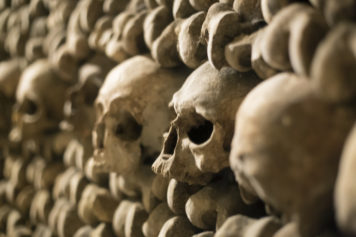Cinco de Mayo has been a holiday celebrated in America for years with a slew of happy hours and themed parties that offer another excuse to get drunk. Almost any store that has even a remote connection to Mexico—and many with con connection at all—do something to celebrate the holiday. The irony, however, is that the holiday is barely even celebrated in Mexico and that the history of the holiday actually links back to the Civil War, not beer and parades.
The roots of the war are so much deeper than what they appear to be in America. Sales at taco stands or even street fairs throughout New York do not do justice to the true origins behind Cinco de Mayo.
Although the majority of Mexican towns don’t do much to celebrate Cinco de Mayo, Puebla is the one place where someone might find some festivities occurring. This is because Puebla is the true home of the holiday’s existence. Cinco de Mayo was originated in order to commemorate the military victory of the Mexican Indian soldiers over the French army that was being led by Napoleon III in 1862. David Hayes-Bautista, a professor of medicine and health services at UCLA and author of the newly released “El Cinco de Mayo: An American Tradition,” explained that “the Gold Rush is responsible for making Cinco de Mayo a popular holiday in the U.S. News of the victories against the French finally reached the thousands of immigrants who had traveled to California in search of gold.”
The Latino immigrants in California were greatly concerned with the slow progress they were seeing from the Union and feared that the Confederacy be victorious, thus allowing slavery to continue across America. The “David vs. Goliath” victory over the massive French forces during the Battle of Puebla, however, gave the Mexicans in America a sense of hope. Since Napoleon was connected to the Confederacy, after he considered aiding them in their fight against the Union, defeating this army convinced them that the Union could also be victorious in their battle against the Confederacy.
The victory of the Battle of Puebla was short-lived, however, as French forces later took over Mexico and put Habsburg Archduke Maximilian in power as the Emperor of Mexico. Fortunately, it only took the Mexicans five years to overthrow Maximilian and later put him to death.
Another wave of immigration that occurred later would change the meaning of Cinco de Mayo, stripping it of its Civil War roots. During the Mexican Revolution there was another large group of Latinos traveling the U.S, but these immigrants had no knowledge of the original meaning of Cinco de Mayo. Rather than appreciating the holiday for abolition and its support for civil rights, they only knew it as a holiday celebrated by Mexican Americans. The Civil War connection eventually died off and the focus was replaced by the actual Mexican victory over the French during the Battle of Puebla. Cinco de Mayo has now become a celebration of Indians defeating a European force, rather than celebrating the hopes of the Union defeating the Confederacy during the Civil War. Even the methods of celebration changed. Rather than having parades of people dressed in Civil War uniforms and speeches about how the Battle of Puebla was really a fight for abolition, celebrations eventually became about beer, parades and Mexican food.
Today the holiday is seen as a way for assimilated Mexican Americans to celebrate and acknowledge their cultural roots and ethnicity, with no regard for the holiday’s original historical context. Jody Agius Vallejo, a sociology professor at the University of Southern California and author of “Barrios to Burbs: The Making of the Mexican-American Middle Class,” said, “It’s very similar to how Irish-Americans celebrate St. Patrick’s Day. One way they can honor their ethnicity is to celebrate this day, even when most don’t know why.”
Of course, not every Latino in the U.S buys into the charade. Vallejo went on to say, “To others this holiday is viewed as a joke because they feel it’s their culture that is being appropriated and exploited.”
With all the different changes to the meaning of the holiday throughout history, a few more years will probably reveal yet another new meaning of the Mexican holiday.
As Hayes-Bautista said, “No one has owned Cinco de Mayo and no one ever will.”


